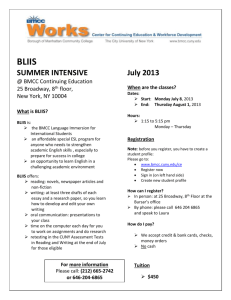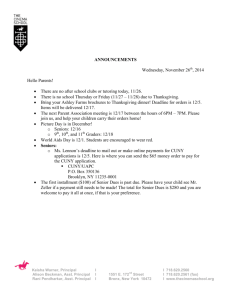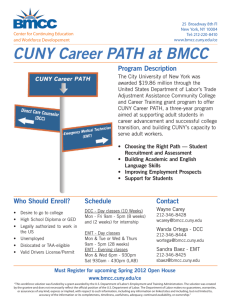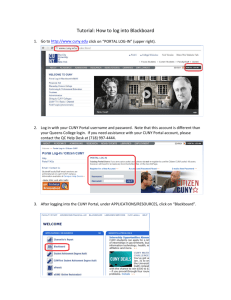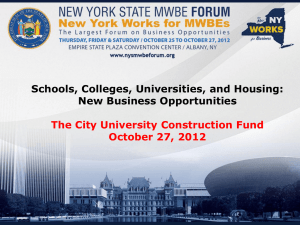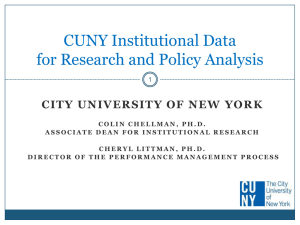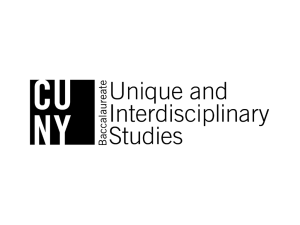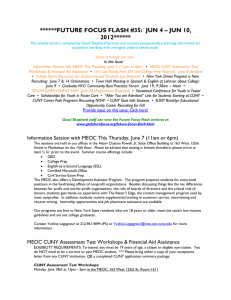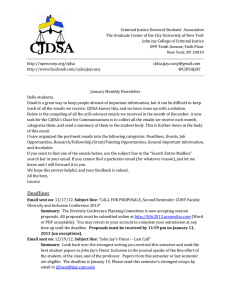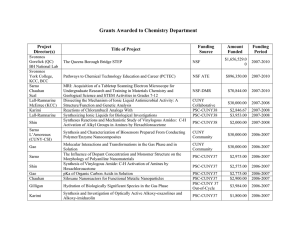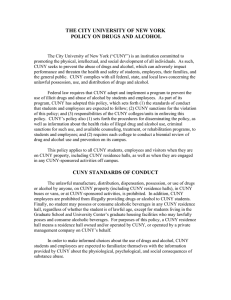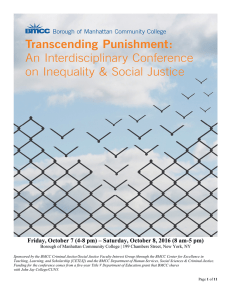The CUNY Policy on Expressive Conduct
advertisement
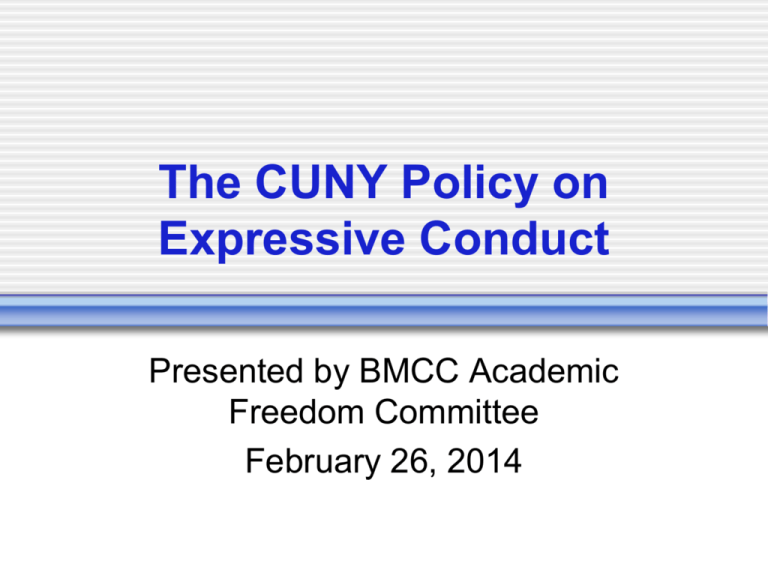
The CUNY Policy on Expressive Conduct Presented by BMCC Academic Freedom Committee February 26, 2014 Current CUNY Policy: Henderson Rules • “A member of the academic community shall not intentionally obstruct and/or forcibly prevent others from the exercise of their rights.” • “Members of the academic community and other persons on the college grounds, shall not use language or take actions reasonably likely to provoke or encourage physical violence by demonstrators, those demonstrated against or spectators.” Proposed Policy: Time, Place and Pre-approval • “CUNY has the right to establish reasonable time, place and manner restrictions on expressive activities.” 10/11/13 CUNY Draft • “Sponsors of a planned demonstration must give notice of the location, date and time to the Director of Public Safety or designee at least 24 hours in advance of the demonstration if they are requesting sound amplification.” 10/11/13 CUNY Draft Freedom of Expression VS. Academic Freedom • “This right [Academic Freedom] differs from the Constitutional right to freedom of speech and assembly guaranteed by the First Amendment in the sense that it is the necessary condition for a faculty member to fulfill his/her professional obligations and responsibilities as a teacher, researcher, and writer. It is also meant to protect faculty members from reprisal for exercising their free speech rights.” BMCC Academic Freedom Manual Rationale for Policy Change • “… However, demonstrations, leafleting, tabling and other forms of expressive conduct must be carried out so as to ensure the safety of individuals, the protection of property, and the continuity of the University’s educational activities and business operations.” 10/11/13 CUNY Draft • “undifferentiated fear or apprehension of a disturbance is not enough to overcome the right to freedom of expression on a college campus.” Healy Case, Supreme Court 1972 “Compelling Interest” No Free-Speech Zones Defeated: U. of Cincinnati, West Virginia U., Nevada at Reno, UNC Greensboro, Citrus College, Texas Tech, etc. • “Defendants shall revise the student speech policies to craft more narrowly tailored regulations that regulate student expressive activities in designated public fora only as are necessary to serve a compelling government interest; and Defendants may impose content-neutral time, place, or manner restrictions in such a way so as not to burden substantially more speech than is necessary to serve a compelling University interest.” Timothy S. Black United States District Judge, June 12, 2012
